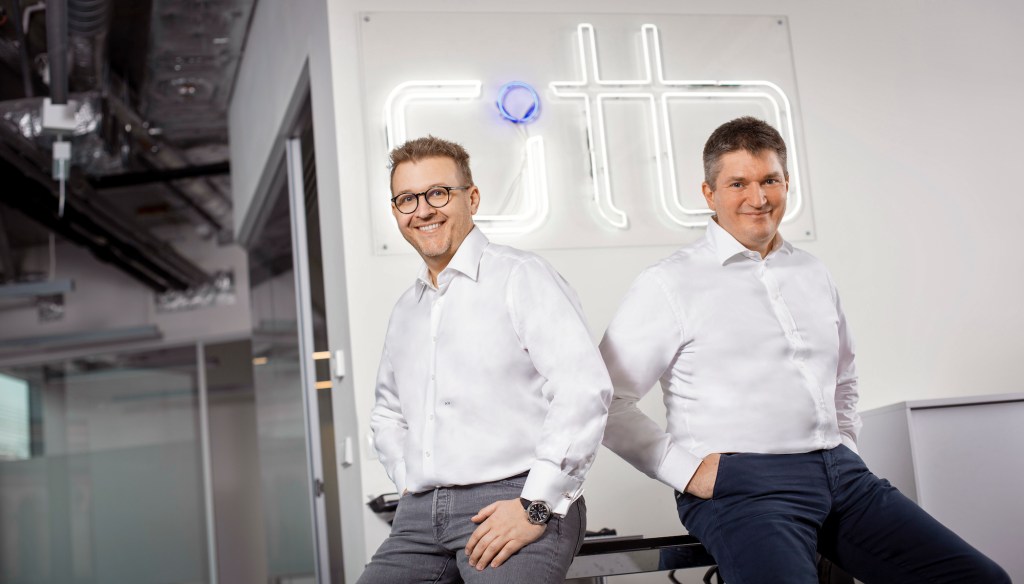
Self-driving technology company Aurora Innovation was hoping to raise hundreds of millions in additional capital as it races toward a driverless commercial launch by the end of 2024. The company, which had arranged to sell up to $420 million worth of shares, exceeded its goal and raised $483 million.
The newly raised funds come a little over a year since Aurora completed a capital raise of $820 million from a public and concurrent private offering of its stock.
“This raise is a testament to investors’ confidence in Aurora’s ability to be a company for the long term, prompted by a recent Analyst Day where investors experienced driverless truck rides, and recent milestones that underscore the strength of our partner ecosystem to deploy at scale,” company spokesperson Rachel Chibidakis told TechCrunch in an email.
Aurora made its public debut through a special purpose acquisition merger in 2021, and its stock has traded as high as $13.12 on opening day. Aurora shares closed Friday at $3.84. Shares rose more than 2% in after-hours trading.
Aurora is pursuing a driver-as-a-service model, wherein carriers purchase trucks with the Aurora Driver tech on board and then offer their services via those trucks to shippers. But the company is planning to go to market as a carrier, offering up to 20 autonomous Paccar and Volvo trucks to shippers at the end of this year.
Aurora first revealed Thursday plans to sell up to $420 million worth of Class A common stock to underwriters Goldman Sachs, Allen & Company and Morgan Stanley, according to an SEC filing. The Thursday agreement came a day after Aurora filed a prospectus offering to sell $350 million worth of shares. Someone familiar with the matter told TechCrunch that due to strong investor demand, the offering had been upsized to $420 million.
Aurora expected the net proceeds from the sale to bring in about $405 million, or around $466 million “if the underwriters exercise their option to purchase additional shares in full,” after deducting the usual discounts, commissions and offering expenses, per an updated filing. The deal closed Friday afternoon pushed the raise to $483 million.
Aurora did not respond Thursday to questions about how it intends to use the net proceeds. The Thursday filing provided few hints, stating vaguely that the company will put the money toward “working capital and other general corporate purposes.” The company also wrote in its filing that it’ll first invest the proceeds from this offering into “short and long-term investment grade instruments, certificates of deposit or guaranteed obligations.”
Aurora provided more detail after the deal closed Friday.
“This opportunistic raise gives us runway well into 2026, putting us on the path to deploy driverless trucks at scale and become a cash flow positive company, which we expect in 2028,” said Chibidakis, adding that as the company approaches its planned commercial launch that enthusiasm is building. “Our continued momentum and more favorable market conditions made this an opportune time to raise additional capital.”
The bid for more funds comes as Aurora reports its second-quarter results. As of June 30, 2024, Aurora had $402 million in cash and cash equivalents and $618 million in short-term investments. Not including the proceeds from its offering, the company expects this to be enough to fund operations into the fourth quarter of 2025.
In Q2 2024, Aurora spent $198 million, which is a direct loss because the startup isn’t yet pulling in any revenue.
The company is slated to start its commercial service later this year on the Uber Freight network. In June, the two companies announced a multi-year collaboration that will see Aurora’s autonomous driving technology offered on the Uber Freight network through 2030.
Update: This story was updated to reflect that Aurora’s $618 million in short-term investments are essentially liquid.
This story was originally published August 1, 2024 at 9:34 am PT. It has been updated to include estimated proceeds per an additional SEC filing. The article was updated Friday at 4:31 pm PT after Aurora had announced the final raise amount.
